Posts
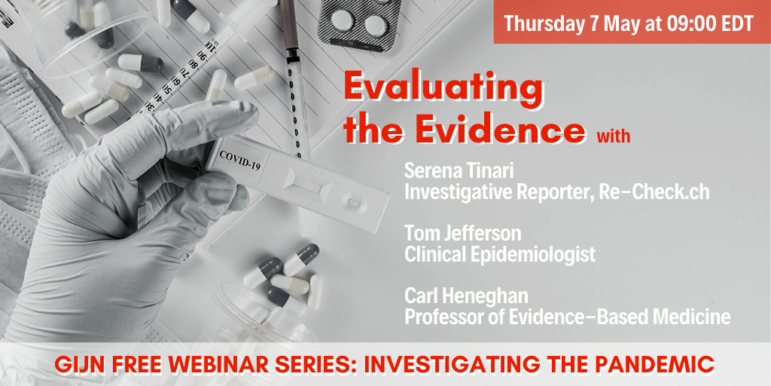
GIJN Webinar — Investigating the Pandemic: Evaluating the Evidence
The COVID-19 pandemic narrative is dominated by numbers — mountains of data and seemingly endless statistical models. Yet most of the figures are uncertain at best, often highly flawed and simply untrue at worst. How to deal with the many claims on the truth that are made every day? What should journalists do if the evidence is poor?
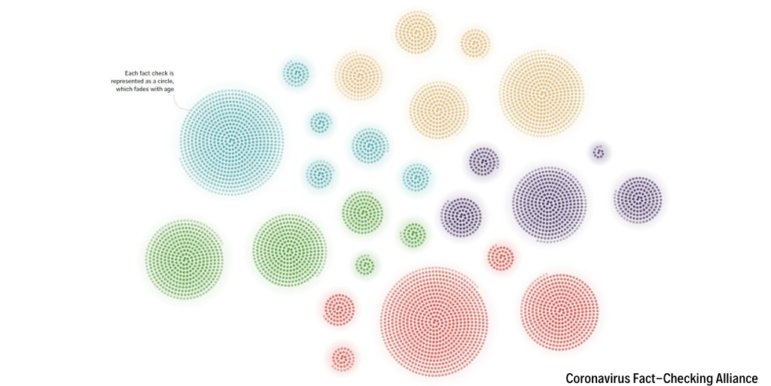
Data Journalism
Data Journalism Top 10: COVID TikTok, Fact-Checking Coronavirus, Trump Narcissism, Pandemic Economy
The popularity of TikTok has surged during the pandemic, and one particular “data investigation” clip has gone viral. Our NodeXL #ddj mapping from April 20 to 26 found TikTok user Rebecca fact-checking a woman’s claim about the COVID-19 quarantine and her grey hair roots, the Coronavirus Fact-Checking Alliance visualizing the thousands of fact checks they have produced during the pandemic, The New York Times analyzing United States President Donald Trump’s messages about the country’s coronavirus response, and FiveThirtyEight examining how concerned Americans are about the coronavirus compared to the economy.
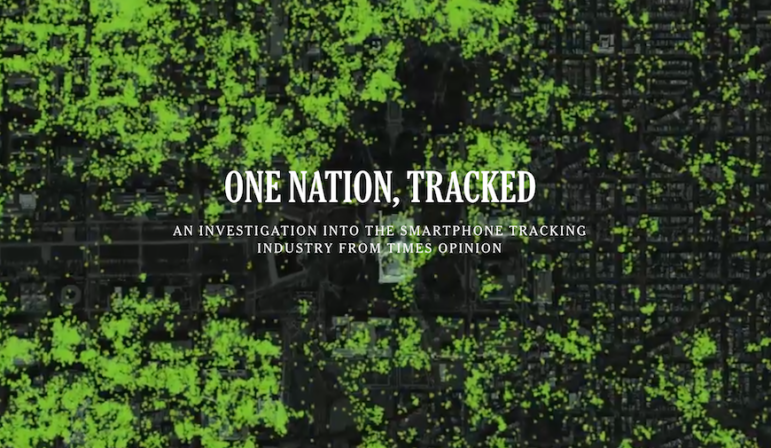
Case Studies
How The New York Times is Visualizing the Smartphone Tracking Industry
The New York Times’ Privacy Project highlighted the alarmingly unregulated activity of location data companies collecting data from millions of smartphone users. As the coronavirus pandemic sheds further light on the uses and misuses of location tracking, here’s a deeper look at the project that visualized phones being tracked around the US, from the Pentagon and the White House to the streets of San Francisco.
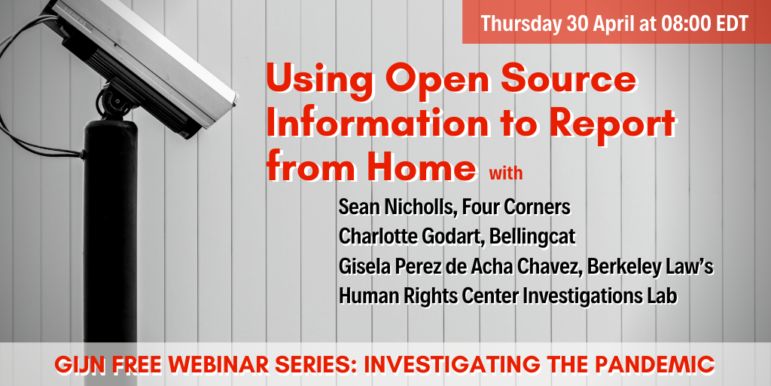
GIJN Webinar: Using Open Source Information to Report from Home
The COVID-19 pandemic brings yet another level of danger to the press: reporting on the ground and interviewing people face-to-face have become high-risk activities — even illegal in some countries. But there are ways to continue investigative work using your laptop, your wit and some very useful techniques — as three experienced investigators will highlight in this GIJN webinar, Using Open Source Information to Report from Home.

Data Journalism
Data Journalism Top 10: Bill Gates Conspiracies, COVID-19 Excess Mortality, Home Deaths Spike, Test Kits
Misinformation has grown ubiquitous during the COVID-19 pandemic, so much so that World Health Organization Director-General Tedros Adhanom Ghebreyesus proclaimed: “We’re not just fighting an epidemic; we’re fighting an infodemic.” Microsoft co-founder Bill Gates has emerged as a favorite target of disinformation actors, according to The New York Times, that we discovered through our NodeXL #ddj mapping from April 13 to 19. We also found The Economist and ProPublica examining the true impact of the pandemic by looking into “excess mortalities” such as home deaths, the Associated Press releasing and updating a coronavirus public dataset for the United States.

Case Studies
How to Adapt Membership Models and Events During the Pandemic
As coronavirus sweeps through communities around the world, the Membership Puzzle Project has shared examples from newsrooms around the world on how they have quickly adapted pillars of their membership programs and memberful routines to respond to the realities of this crisis.
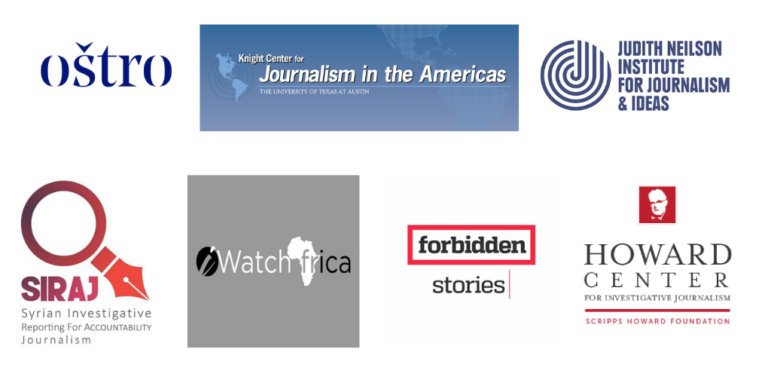
GIJN Welcomes Seven New Member Organizations in Five Countries
The Global Investigative Journalism Network is delighted to welcome seven new member organizations based in five countries. We are particularly pleased to welcome our first member in Australia and our first representing Syrian journalists. The new groups bring GIJN’s global membership to 184 organizations in 77 countries.
